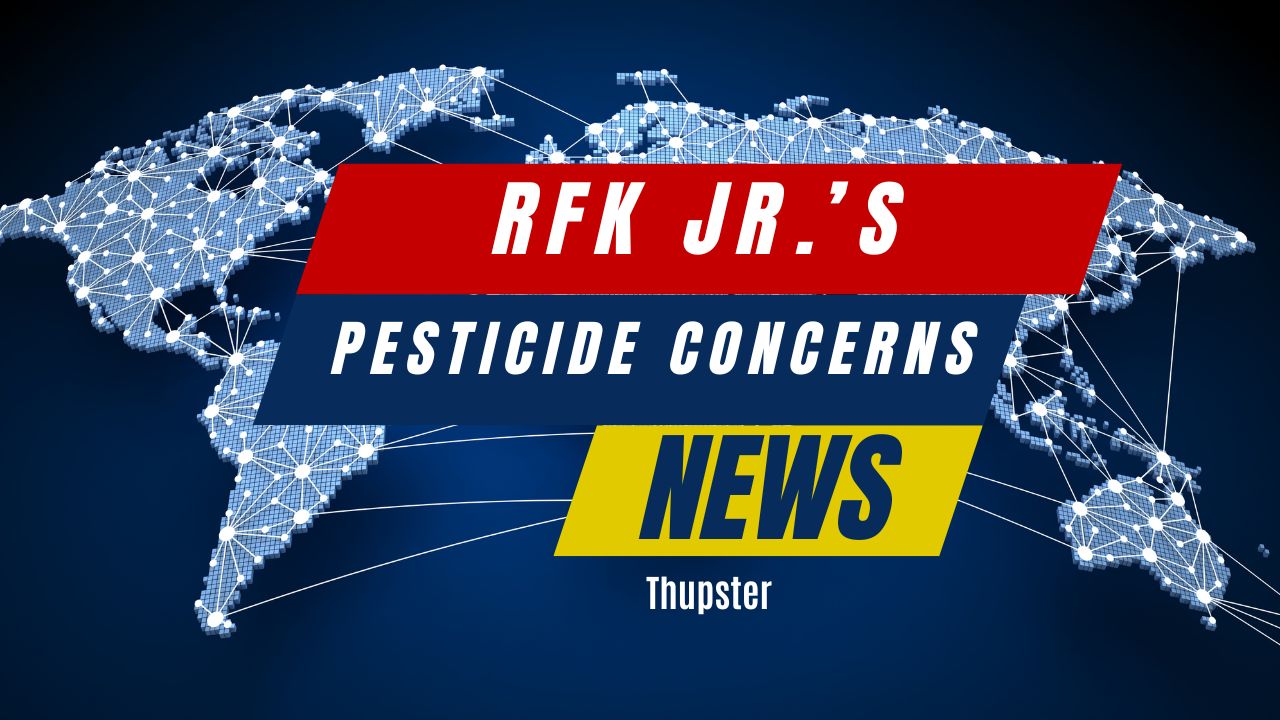In recent years, discussions surrounding environmental health and agricultural practices have gained significant traction on both political and public stages. A key example of these evolving debates can be observed in Washington’s political sphere through a bid by Health Secretary Robert F. Kennedy Jr. to address the potential harm posed by pesticides within the United States. This initiative, which has garnered considerable attention, is rooted in a complex web of interests including health concerns, agricultural practices, and regulatory frameworks.
Central to this narrative are the actions taken by Kennedy, who aims to label pesticides as a significant contributor to U.S. health issues. His efforts represent an attempt to elevate public awareness regarding the potential negative impacts of widespread pesticide use on both human health and the environment. As part of his broader agenda, Kennedy has historically advocated for reducing or eliminating pesticides from the food supply chain, viewing this as essential to improving national health standards.
The response to Kennedy’s proposal, however, reflects a multifaceted challenge that involves various stakeholders with vested interests. White House officials have expressed concerns about the implications of such an action on the broader agricultural industry and food production. They highlight the potential disruptions that could arise from altering pesticide policies without sufficient scientific backing or consideration for practical implementation.
The Environmental Protection Agency (EPA) and the Agriculture Department have also been involved in this debate, weighing in with their own perspectives on the matter. Critics within these agencies argue against Kennedy’s initiative, citing the need for more research to validate any claims regarding the adverse effects of pesticides. This resistance reflects a broader tension between environmental health concerns and the economic interests of agricultural industries.
The context of this debate is further complicated by political commitments made during the presidential campaign trail. President Trump had pledged to investigate pesticides as part of his effort to garner support from Kennedy’s backers, indicating a political dimension to these discussions. The establishment of a panel to work with Kennedy on investigating chronic health diseases underscores the complex interplay between political promises and policy outcomes.
The report that Kennedy is spearheading, titled “Make America Healthy Again,” aims to examine a range of factors contributing to chronic disease in children, including food consumption patterns, lack of exercise, technology use, pesticide exposure, and medical system issues. By focusing on specific pesticides like glyphosate (found in Roundup) and atrazine, the report seeks to highlight particular chemicals that could pose health risks.
This section lays the groundwork for understanding the complexities involved in addressing environmental health concerns through policy-making, highlighting the tensions between advocating for public welfare and navigating economic realities tied to agriculture. It sets the stage for a broader exploration of how these issues are navigated within political and regulatory frameworks.
As the debate unfolds, it becomes evident that Kennedy’s initiative faces significant hurdles due to the deeply ingrained nature of pesticide use in U.S. agriculture. Despite concerns about health risks, the prevalent use of pesticides like glyphosate raises questions about the balance between scientific evidence and practical considerations such as food safety and crop yields.
The role of influential figures like Calley Means, who has been instrumental in coordinating the report along with others, highlights the importance of expert input in shaping policy discussions. Moreover, food influencers like Vani Hari, closely aligned with Kennedy’s efforts, emphasize the broader implications of these policies for public health.
This section provides insight into the intricate process of formulating policy recommendations that must navigate a myriad of interests and scientific debates. It underscores the challenges faced by advocates seeking to change established practices while facing skepticism from various quarters.
The upcoming release of the MAHA report is anticipated to have significant implications, representing both an opportunity for impactful change and a potential source of controversy. By addressing key issues such as pesticide use, air and water pollution, and endocrine-disrupting chemicals, this document could catalyze further discussions on health and environmental policy.
As various stakeholders prepare their responses to the report’s findings, it becomes clear that the debate over pesticides is far from resolved. The involvement of officials like Nancy Beck from the EPA reflects ongoing tensions between regulatory agencies and those advocating for stricter environmental standards.
The broader significance of this narrative lies in its reflection of evolving attitudes toward environmental health within a political context. It highlights the complex interplay between scientific research, public policy, and economic interests that shapes our approaches to addressing health concerns tied to the environment.
The initiative by Health Secretary Robert F. Kennedy Jr. to address pesticide use reflects an ongoing struggle to balance competing demands related to health, economy, and regulatory frameworks. As this report nears its release, it stands to contribute meaningfully to public discourse on environmental health, with potential long-term implications for policy and practice.
Ultimately, the resolution of these debates will depend on the ability of stakeholders to engage in constructive dialogue, integrating scientific evidence with practical considerations to foster a healthier environment and society. As we move forward, the significance of this narrative lies not only in its immediate findings but also in its capacity to inspire future research and policy development aimed at safeguarding public health.

Leave a Reply